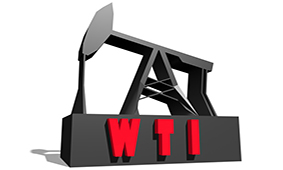
Opec+ deal not enough to stabilise market: Asian buyers

The production cut agreement fell short of what the global market had expected, Petroleum Association of Japan (PAJ) chairman Takashi Tsukioka said today. The Japanese oil industry is hoping that further discussions will take place between members of the Opec+ group and other oil-producing countries to stabilise the market, he said.
Opec and non-Opec producers agreed at an emergency video conference yesterday that the alliance will cut output by 9.7mn b/d in May-June, 7.7mn b/d over July-December and 5.8mn b/d from January 2021-April 2022.
Tsukioka's comments imply Japan's oil industry is open to higher crude prices, despite the country relying on imports for virtually all its crude needs.
Japanese refiners are continuing to cut run rates because of lower demand for oil products, particularly jet fuel and motor gasoline, as the government restricts movements of people and business activity to curb the coronavirus outbreak. Cuts to term crude supplies with Opec+ countries would make it easier for the refiners to maintain lower rates, given their limited storage capacity for crude and refined products. But lower run rates increase per bl production costs, and a rise in crude prices could help refiners to raise sales prices for their refined product output.
Tsukioka's comments were echoed by officials at refiners and traders elsewhere in Asia-Pacific. The cuts are insufficient to balance the slump in demand caused by the Covid-19 outbreak, several market participants told Argus.
US bank Goldman Sachs said after the Opec+ agreement was reached that the cuts are "still too little and too late to avoid breaching storage capacity". No voluntary supply cuts could be large enough to offset an expected 19mn b/d average loss in demand in April-May because of the coronavirus, it said.
Inland crude prices will decline further in the coming weeks, although Brent prices will outperform WTI as a reduction in seaborne exports from Opec+ producers will free up vessels for use as floating storage and cap freight rates, Goldman Sachs said.
Futures prices fell back over the course of the Asian trading day, after initially rising by as much as 8pc after the agreement was reached. The Ice front-month June Brent contract was at $31.15/bl at 10.30am GMT, down by 33¢/bl from its close on 9 April. The Nymex front-month May crude contract was up by 8¢/bl at $22.84/bl, after earlier rising as high as $24.74/bl.
By Maiko Nakashima, Fabian Ng and Kevin Foster


Trump weighs using $2 billion in CHIPS Act funding for critical minerals

Codelco cuts 2025 copper forecast after El Teniente mine collapse

Electra converts debt, launches $30M raise to jumpstart stalled cobalt refinery

Barrick’s Reko Diq in line for $410M ADB backing

Abcourt readies Sleeping Giant mill to pour first gold since 2014

Nevada army depot to serve as base for first US strategic minerals stockpile

SQM boosts lithium supply plans as prices flick higher

Viridis unveils 200Mt initial reserve for Brazil rare earth project

Tailings could meet much of US critical mineral demand – study

Kyrgyzstan kicks off underground gold mining at Kumtor

Kyrgyzstan kicks off underground gold mining at Kumtor

KoBold Metals granted lithium exploration rights in Congo

Freeport Indonesia to wrap up Gresik plant repairs by early September

Energy Fuels soars on Vulcan Elements partnership

Northern Dynasty sticks to proposal in battle to lift Pebble mine veto

Giustra-backed mining firm teams up with informal miners in Colombia

Critical Metals signs agreement to supply rare earth to US government-funded facility

China extends rare earth controls to imported material

Galan Lithium proceeds with $13M financing for Argentina project

Kyrgyzstan kicks off underground gold mining at Kumtor

Freeport Indonesia to wrap up Gresik plant repairs by early September

Energy Fuels soars on Vulcan Elements partnership

Northern Dynasty sticks to proposal in battle to lift Pebble mine veto

Giustra-backed mining firm teams up with informal miners in Colombia

Critical Metals signs agreement to supply rare earth to US government-funded facility

China extends rare earth controls to imported material

Galan Lithium proceeds with $13M financing for Argentina project

Silver price touches $39 as market weighs rate cut outlook

















